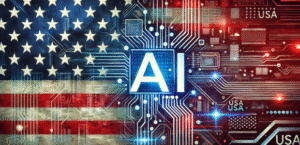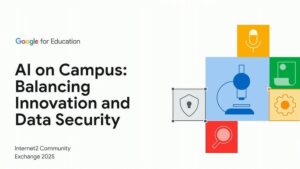The US–UAE multi-billion-dollar AI data campus deal is not yet finalized
Short version: what looked like a landmark U.S.–UAE AI partnership announced in May — a planned multi-billion-dollar campus in Abu Dhabi to host massive AI data centers and advanced chips — remains far from a done deal. Key technical, legal and national-security issues are unresolved, U.S. officials say, and industry partners are still sorting through export controls, supply constraints, and political scrutiny. This article walks through the timeline, who’s involved, what’s blocking the deal, and what the potential outcomes and wider implications are. Reuters+1Financial Times
How we got here: the big announcement and the headline numbers
In mid-May 2025, the White House and Emirati officials publicly framed an ambitious partnership to accelerate AI infrastructure in the UAE. The project — variously described in media reports as a 10-square-mile campus delivering multiple gigawatts of power (with a first phase of roughly 1GW and expansion up to 5GW) — was pitched as a strategic move to position Abu Dhabi as a global AI hub and to bind UAE and U.S. AI investments closer together. Some versions of the plan mentioned as many as 100,000 advanced Nvidia chips initially and potential infrastructure and financing commitments running into the tens or even hundreds of billions across a multi-year horizon. The White House also released a fact sheet highlighting commitments by the UAE to invest in data-centre infrastructure both domestically and in the United States. The White HouseFinancial Times
The announcement carried heavy symbolism: senior U.S. tech leaders accompanied President Trump to Abu Dhabi, and the project name that appeared in some coverage — “Stargate” or variations of it — came to represent a potential pivot in how U.S. advanced chips and AI expertise could be deployed abroad under special safeguards. But soon after the headlines, reporting from multiple outlets made it clear that the political ceremony did not equal a closed commercial transaction — far from it. Reuters+1
Who are the main players?
-
G42: The Abu Dhabi-based AI and cloud group widely reported to be the Emirati lead on the campus. G42 has deep ties to the UAE government and has built an AI ecosystem across the region.
-
U.S. tech companies and chipmakers: Nvidia (the supplier of advanced AI accelerators), cloud and infrastructure firms like Oracle and Cisco, and reports also referenced OpenAI as a potential anchor tenant or partner in model training and operations. Major companies were publicly present in the UAE when the partnership was announced, underscoring strong commercial interest. ReutersFinancial Times
-
UAE government and state investors: financing and permitting for large data centers typically requires state backing for land, power and strategic coordination. The UAE’s pledge in the White House fact sheet to mirror investments in the U.S. was a signal of reciprocal economic commitments. The White House
-
U.S. government agencies: Commerce, State and national-security bodies — which control export licensing and sensitive-technology approvals — are central to any final agreement because of restrictions on exporting top-end chips and AI systems. The Wall Street Journal
These stakeholders bring different incentives: industry wants scale and predictable supply of chips and customers; the UAE wants to leap into global AI leadership; and U.S. regulators want to protect national-security interests and prevent sensitive technologies from leaking to adversaries. Harmonizing all three is the core challenge. Reuters
Why it’s not finalized: the three big sticking points
1. National-security concerns and export controls
Even if governments frame the partnership as beneficial to both sides, exporting advanced AI accelerators and related systems is tightly regulated. Since 2022 the U.S. has restricted exports of top-end AI chips and enabling technology to China and has created licensing regimes intended to prevent circumvention. U.S. officials are reported to be cautious about enabling transfers that could be accessed, duplicated or rerouted to actors of concern — especially given the UAE’s commercial ties to Chinese tech firms and historical deployments of Huawei equipment. That makes straightforward approvals improbable without strict, verifiable safeguards and oversight mechanisms. The Wall Street JournalReuters
2. Concerns about third-party access and supply-chain pathways
The deal’s critics point to the reality that chips and cloud infrastructure are only one part of a broader supply chain. Software, services, maintenance and personnel can provide de facto access to capabilities even if hardware transfer is restricted. U.S. agencies want to be confident that Chinese firms or personnel will not have operational control or back-door access to sensitive systems. Resolving this requires unprecedentedly granular contractual and technical constraints — from where data resides, how backups are handled, to who has administrative privileges on the systems. Reuters
3. No single, binding legal package yet
Public statements and fact sheets are not legally binding deals. Sources close to reporting stress that many of the proposals remain principles rather than executable contracts. The timeline for chip deliveries, the specific export license approvals, and precise roles of participating U.S. companies were all described by reporting outlets as contingent on further negotiation and regulatory review. That status — “far from finalized” — is the simplest and most important reason the press and analysts emphasize. Reuters+1
The political dynamics: bipartisan caution in Washington
This partnership plays in a complex political theater. On one hand, many U.S. policymakers and business leaders see strategic value in anchoring AI infrastructure with friendly states and diversifying supply and compute capacity. On the other hand, concerns about China’s access to capabilities — either directly or via third parties — have bipartisan traction in Congress and among national security professionals. The upshot: even if the White House endorses a framework, career officials and congressional overseers may demand extra conditions, hearings, or even legislation to ensure sensitive chip transfers are tightly controlled. This dynamic slows the path from announcement to signature. The Wall Street JournalReuters
What would “finalized” actually look like?
Turning the announced framework into an executable deal would require at least:
-
Specific export-licensing approvals from the Commerce Department for discrete chip types and volumes — with clauses tying use only to approved hardware, sites and operators.
-
Detailed inter-governmental agreements that codify oversight, inspection rights, vetting of personnel, and incident response protocols.
-
Contractual guarantees from corporations: service level agreements, no-third-party access clauses, auditability of software supply chains, and liability terms in case of misuse.
-
Infrastructure commitments with verification: where power will come from, who will build and maintain the physical sites, and how redundancy and fail-safe measures will be managed.
-
Clear pathways for enforcement: what happens if parties violate terms, and which courts or tribunals have jurisdiction.
Without all of the above, U.S. regulators are unlikely to greenlight high volumes of top-tier AI chips for export to a foreign campus. Reuters reporting emphasised that no timeline was set and that UAE officials might request changes that prolong approvals. Reuters+1
Possible scenarios and outcomes
A. Deal finalizes after concessions
If the UAE accepts strict controls and the U.S. crafts a licensing and oversight regime that reassures regulators, the project could proceed — perhaps in a phased way (smaller initial chip allotments, tight operational oversight, expansion contingent on audits). That would be portrayed as a win for U.S. tech exports and for the UAE’s ambition to be an AI hub. The White House
B. Deal stalls or is scaled back
If the U.S. cannot reach sufficient safeguards or if companies choose not to participate because of legal or reputational risk, the project could be delayed or reduced in ambition. The UAE might shift to alternative suppliers (including Chinese vendors) for some infrastructure, undermining the original geopolitically framed outcome. Reuters reporting flagged both the potential for delay and the role of Chinese presence as a sticking point. Reuters
C. Fragmented outcome
Parts of the announcement could proceed — for example, UAE investments in U.S. data centers or cloud partnerships, while the Abu Dhabi campus uses a mix of vendors and technologies, some tied to U.S. firms and some not. This would produce a patchwork of cooperation and competition. The White House
What it means for the AI industry and chip markets
-
Nvidia and chip allocation: If U.S. licensing limits volumes or timing, it will affect how chip inventory is allocated globally. Large purchases for one campus could tighten supply for others, with price and availability impacts across cloud providers and model-training customers. Media reports referenced initial figures like 100,000 chips in early phases, which would be a material portion of global inventories at scale. Reuters
-
Cloud and services market: Anchor tenants or preferred cloud providers in the project would gain new large-scale customers, but risks tied to political controversy could dampen some corporate appetite. Firms involved must weigh the commercial opportunity against regulatory overhead and reputational exposure. Financial Times
-
Standards and auditability: This negotiation could set precedents for on-site sovereignty, data localization, and third-party audits for AI infrastructure — standards that other countries may seek to replicate. The technical and contractual templates developed here could become de-facto export-control playbooks for civilian AI cooperation. Reuters
The UAE’s perspective: rapid AI growth vs. strategic independence
The UAE has been explicit about wanting to leap forward in AI capacity. Building enormous data centers and hosting advanced models is a fast path to both economic diversification and geopolitical influence. But the UAE must balance the desire for top technology and investment with the risk of becoming over-dependent on any single external partner or being seen as a conduit for technologies that worry other global powers. The White House fact sheet’s emphasis on reciprocal investments in U.S. infrastructure is also meaningful — it frames the deal as two-way, not just an export. The White House
Geopolitical ripple effects
-
U.S.–China competition: Any U.S. easing on chip exports tied to this partnership will be watched closely by Beijing. Washington must demonstrate that pathways to circumvention are closed, or it risks accelerating rival strategies for securing compute and talent. Reporting about Chinese tech companies’ presence in the UAE is central to that concern. The Wall Street JournalReuters
-
Regional dynamics: Other Gulf states and regional powers will read outcomes as signals — both about access to technology and about the political economy of hosting critical AI infrastructure. If the UAE succeeds with strict oversight, it may set a template for “trusted” AI hubs; if not, other states may pursue more heterogenous strategies. Financial Times
Legal, compliance, and reputational considerations for companies
Companies considering participation face a thicket of issues: export-control compliance, supply-chain risk, data-privacy regimes, and shareholder and public scrutiny. Firms may require indemnities and government guarantees that are hard to secure. Senior executive presence at the initial announcement signaled interest, but it did not remove regulatory or legal complexity. This is why multiple news outlets stressed that the partnership is “far from finalized.” Reuters+1
What to watch next (practical indicators the deal is moving)
-
Export license approvals explicitly naming chip models and volumes from the Commerce Department.
-
Signed commercial contracts between named U.S. companies and UAE entities detailing governance and audit rights.
-
Congressional briefings or hearings — an appearance of strong congressional oversight would indicate a political vetting process is under way.
-
Public timelines for chip deliveries — carriers often reveal supply schedules; an announced shipping window would be a concrete signal.
-
Third-party audit or oversight frameworks (independent inspectors, on-site monitoring tech) to verify compliance.
If none of these appear within a few months of major announcements, the odds rise that the project will be paused or scaled back. Reuters and others noted there was no set timeline and that UAE negotiators could ask for amendments, which suggests the window for clarity could extend. Reuters+1
Policy recommendations (for policymakers and industry)
-
For U.S. policymakers: Build transparent, enforceable licensing frameworks that balance strategic competition with commercial innovation — and publish clear criteria so companies and partners know what’s required. Encourage sunset provisions and regular reviews. The Wall Street Journal
-
For UAE leaders: If the goal is to be a trusted AI hub, accept verifiable oversight mechanisms, invest in domestic audit and cybersecurity capabilities, and diversify partner networks to reduce geopolitical leverage over the project. The White House
-
For corporations: Require contractual clarity on governance, compliance responsibilities, and contingency plans. Insist on technical controls that are auditable and legally enforceable. Assess reputational risk and investor sentiment alongside revenue forecasts. Financial Times
Bottom line
The headlines in May promised an audacious partnership: U.S. technology, Gulf capital, and a gargantuan Abu Dhabi data campus fueling next-generation AI. But ceremonial photo-ops and high-level fact sheets are only the opening act. The substantive elements — export licenses, technical controls, enforceable contracts and political buy-in in Washington — are still unresolved. That is why multiple outlets, led by Reuters, concluded that the multi-billion-dollar plan is “far from finalized.” Whether it becomes a model for cross-border AI collaboration or a cautionary tale of geopolitics and technology will depend on the details the parties are still negotiating. Reuters+1Financial Times
Sources and further reading (selected)
-
Reuters: “US-UAE multi-billion dollar AI data campus deal far from finalised, sources say.” Reuters
-
Reuters: “’Stargate UAE’ AI datacenter to begin operation in 2026.” Reuters
-
Financial Times: “OpenAI to join US-UAE plan to build vast data centre in Abu Dhabi.” Financial Times
-
White House fact sheet on U.S.–UAE deals and AI partnership. The White House
-
Wall Street Journal coverage on national-security concerns around chip transfers. The Wall Street Journal
https://bitsofall.com/https-www-yoursite-com-apple-opens-its-ai-toolbox-for-developers/






